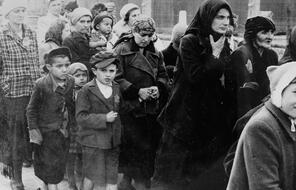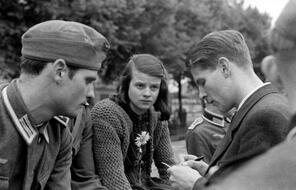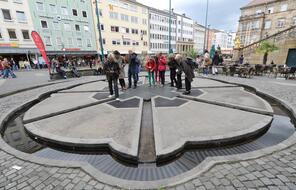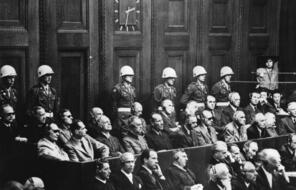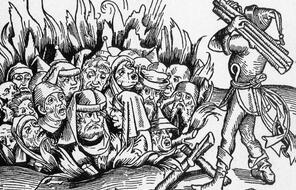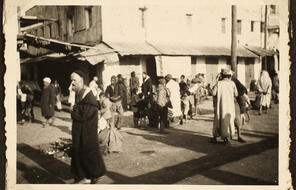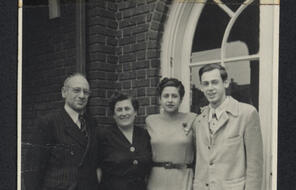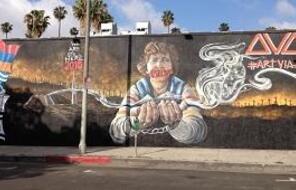The Holocaust as a Call to Conscience
At a Glance
Language
English — USSubject
- History
- Social Studies
- Human & Civil Rights
- The Holocaust
The legacy and memory of the Holocaust remain alive in numerous people, places, and institutions today. The history lives in international bodies like the United Nations and the International Criminal Court, in the stories of survivors and their families, and in the sites and memorials that millions of people visit each year. One of the most important legacies of the Holocaust, though, isn’t a physical person, place, or thing. It is an idea, a promise most often expressed in the phrase “never again.”
For decades, Holocaust survivor Elie Wiesel urged his readers and listeners to see the Holocaust not just as a historical event but as a call to conscience for people everywhere. He linked world leaders’ failures to stop Nazi crimes in the 1930s and 1940s with the problem of indifference in the twenty-first century. When the United States Holocaust Memorial Museum opened in 1993, Wiesel spoke at the dedication to an audience that included then President Bill Clinton. At the time, the country of Yugoslavia had broken apart and was at war, and a violent campaign of “ethnic cleansing” against minorities was under way there. Wiesel’s remarks made a bridge between his life history and the world today. He told his audience,
[A]s you walk through those exhibits, looking into the eyes of the killers and their victims, ask yourselves how could murderers do what they did and go on living? Why was Berlin encouraged in its belief that it could decree with impunity the humiliation, persecution, extermination of an entire people? Why weren’t the railways leading to Birkenau bombed by Allied bombers? As long as I live I will not understand that. And why was there no public outcry of indignation and outrage?
. . . Oh, I don’t believe there are answers. There are no answers. And this museum is not an answer; it is a question mark. If there is a response, it is a response in responsibility . . .
What have we learned? We have learned some lessons, minor lessons, perhaps, that we are all responsible, and indifference is a sin and a punishment. And we have learned that when people suffer we cannot remain indifferent.
And, Mr. President, I cannot not tell you something. I have been in the former Yugoslavia last fall. I cannot sleep since for what I have seen. As a Jew I am saying that we must do something to stop the bloodshed in that country! People fight each other and children die. Why? Something, anything must be done.
This is a lesson. There are many other lessons. You will come, you will learn. We shall learn together. 1
Wiesel’s message continues to resonate in the twenty-first century, at a time when many would say that the “lessons” of the Holocaust have not been learned and the promise of “never again” has not been fulfilled. Remembering post–World War II genocides in Cambodia, Rwanda, the former Yugoslavia, and Darfur, a group of scholars and activists observed, “Leaders at every level seem to love hearing themselves declare ‘Never Again.’ But those who mean it have no power and those with power never mean it. The record speaks for itself . . . ” 2 In the face of this dismal record, the memory of the Holocaust continues to inspire people to work to end genocide and mass violence—a task that will require the dedication, persistence, and vigilance of generations. No one understands this better than Benjamin Ferencz, a prosecutor at the Nuremberg trials who has dedicated his life to this work.
In 1945, Ferencz was a 25-year-old American soldier when he was transferred to the army’s newly created War Crimes Branch, where he was asked to gather evidence of Nazi atrocities. What he witnessed on this assignment changed him and defined his life’s work. He writes:
Indelibly seared into my memory are the scenes I witnessed while liberating these centers of death and destruction. Camps like Buchenwald, Mauthausen, and Dachau are vividly imprinted in my mind's eye. Even today, when I close my eyes, I witness a deadly vision I can never forget—the crematoria aglow with the fire of burning flesh, the mounds of emaciated corpses stacked like cordwood waiting to be burned. . . . I had peered into Hell. 3
Ferencz graduated from Harvard Law School in 1943, before he joined the army. After the war, he was asked to join the team of prosecutors at the Nuremberg trials. At age 27, he was the chief prosecutor for the United States in the Einsatzgruppen Case, in which 22 leaders of the Nazi mobile killing units were charged with murdering more than a million people. Using evidence Ferencz had gathered while working for the army’s War Crimes Branch, the tribunal convicted all of the defendants and sentenced 13 to death.
After the Nuremberg trials, Ferencz continued to work for justice in the aftermath of the Holocaust. He led the complicated process of returning property to Holocaust survivors and their families, and he helped to negotiate reparations payments between West Germany and Israel. Because war, genocide, and other atrocities continued to occur after World War II and the Holocaust, Ferencz felt compelled to act. He lobbied for establishing the International Criminal Court (see reading, The International Criminal Court) and for the increased development and use of international law. As he reaches his 90s in the 2010s, Ferencz feels greater urgency than ever to create global institutions to prevent war. He wants young people to join his movement:
The question for you is where do you stand? Where do you stand? Do you stand for a world as we have it, a realist world, with the killing, with the rapes, with the murders? If you do, what are you doing here? Go home . . .
If you believe it is possible to have a more humane world, what we were fighting for in Nuremberg, and what I’m still fighting for, then you’ve got to join the fight. Everybody can do something. Write a letter to the President. Call him up. Talk to your neighbor. Talk to your friends. Talk to your enemies . . . Do whatever you can. That’s what I’m trying to do. 4
In a documentary film called Watchers of the Sky, Ferencz puts his life’s work in perspective by telling the story of Tycho Brahe, a sixteenth-century Danish astronomer:
Tycho Brahe was an astronomer who felt that he wanted to find out the meaning of the universe. So he persuaded the king that he should build an astronomical laboratory on the island of Hven. There he built his observatory, and every night he went out and viewed the stars and he put them down in a chart. And he'd done that for about 25 years.
A new king came on the throne and they said, "Look, we've got something going on out there near Elsinore." So the [treasury] people came out and they said, "Old man, wake up! Wake up! The king wants to know what you've been doing here these last 25 years.”
All he said was, "I've been watching the skies."
"Watching the skies? What for?"
He said, "Well, I have made a chart, and I have 97 volumes. Each one I've measured myself, and I can tell you the movement of every one of those stars."
"Well, what's the use of it? What do you intend to do with it?"
He said, "I hope to live to get 100."
"100 volumes? What's the utility of it? What can you do with that?"
"Well," he said, "I admit that I was trying to find out the meaning of the universe, and I haven't found it yet. But I believe that someday, somebody will, and I will have saved that person 25 years of labor."
Ferencz pauses with tears in his eyes before finishing the story:
And when the American astronauts landed on the moon [in 1969], they had with them the tables of Tycho Brahe.
So there it is. An inspirational story, "the Watchers of the Sky." I am watching the sky. That's it. 5
Connection Questions
- What is “conscience”? How can an awareness of history influence an individual’s or a nation’s conscience?
- Speaking of the Holocaust, Elie Wiesel said, “If there is a response, it is a response in responsibility.” What do you think he means by this statement?
- What does it mean to Benjamin Ferencz to be a “watcher of the sky”? How does the story of Tycho Brahe help him persist in the work he does and also put his life’s work in perspective?
- What are the qualities of a “watcher of the sky”? Can you think of other “watchers of the sky”?
- 1Elie Wiesel, “Elie Wiesel's Remarks at the Dedication Ceremonies for the United States Holocaust Memorial Museum, April 22, 1993,” United States Holocaust Memorial Museum, accessed June 3, 2016.
- 2Gerald Caplan, Samuel Totten, and Amanda Grzyb, “Genocide: America says ‘Never Again,’ but keeps turning a blind eye,” The Globe and Mail (Toronto), April 25, 2013, accessed June 3, 2016.
- 3Benjamin B. Ferencz and Ken Keyes, Jr., PlanetHood: The Key to Your Survival and Prosperity (Coos Bay, OR: Vision Books, 1988), 8.
- 4Benjamin Ferencz, “An Evening with . . . Ben Ferencz: Transcript,” interview by Joan Ringelheim, United States Holocaust Memorial Museum, last modified October 5, 2000, accessed September 16, 2015.
- 5Ben Ferencz, Watchers of the Sky (documentary film), directed by Edet Belzberg (Music Box Films, 2014).
How to Cite This Reading
Facing History & Ourselves, "The Holocaust as a Call to Conscience," last updated May 12, 2020.


